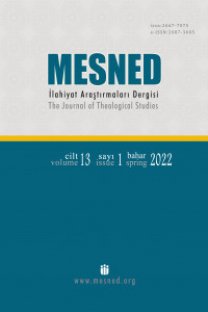الاستشھاد في اللغة العربیة
Quoting in Arabic language are extensively used in Arabic language books. This makes these bookscrowded with words such as: As-shahed (the quote that proves a language usage in specificcontext), Methaal (example of usage), Al-hujja (the proof of the correctness) or expressions such as:“It has more flexibility to have quotes from modernized resources in the context of Al-ma’anee(semantics studies)”, “ only classic resources are applicable in the field of …. , where modernizedones are not acceptable”, “this quote was confirmed to be used as a proof of the language usage inthis context”, or “quoting from this poem is not acceptable since the poet’s trip is not recognized tobe quoted from” …. etc.Quoting is one of the most important field of study in Arabic language where it plays a key role onbuilding and validating the language rules in different fields such as syntax, morphology, andrhetoric. This is by studying the standards that determine the validity of quoting a given text (fromArabic reference) in order to be used as a foundation to form language rules in the Arabic language.Due to its importance, quoting has been extensively studied in literature and many ancient andrecent references have tickled this topic. Numerous number of books have implicitly studied thistopic and many research papers have either wholly discussed quoting or one of its aspects.The main question is “Does all Arabic sayings are valid to be quoted”. Moreover, due to the longhistory of Arabs a second question is raised up: “at what point of the timeline of Arab history,Arabic text can be still quoted?”, and why the speech of some Arabic tripes can be quoted while it isnot the case for the others? And since Arabic language contains several types of speech such aspoem and prose, Quran and Ḥadīth, does all are valid to be quoted and are all equal in quoting rules.And do these different types of speech are equal to quote in all linguistic sciences or some type canbe used for quoting on one field while the other cannot? And some fields are more restricted thanthe others? This field of study tries to answer all the above questions, by putting an accuratecriterion which based on many factors such as the time and the geographical location where thisArabic saying is recorded.This research (Quoting in Arabic Language) surveyed all related works in literature includingancient works and recent researches. Furthermore, the research questions stated above are alsoinvestigated and related terms, definitions and research topics in the field are addressed andhighlighted. Finally, the researcher pointed out that the awareness of ancient Arabs to protect theirlanguage lead them to rigorously deal with quoting issues. Thus the researcher recommends torevise previous works in order to be adapted with the current needs without diluting the case.
Anahtar Kelimeler:
Arabic language, Quran and Ḥadīth
___
- كشّاف اصطلاحات الفنون والعلوم: للباحث العلّامة محمد علي التھانوي (ق 12 ھ)، تحقیق: د. علي دحروج وآخرین، مكتبة
- 1996 م. ، لبنان ناشرون، بیروت، ط 1 لسان العرب، محمد بن مكرم بن منظور ( 711 ھ)، دار صادر، بیروت، د.ت. كتاب اللغة العربیة بین الوھم وسوء الفھم: د.كمال بشر، دار غریب، مصر، 1999 م.
- مجمع الأمثال: أبو الفضل أحمد بن محمد بن أحمد بن إبراھیم النیسابوري المیداني ( 518 ھ)، تحقیق: محمد محیي الدین عبد الحمید، مكتبة السنة المحمدیة، مصر، 1374 ھ- 1955 م.
- . المزھر في علوم اللغة وأنواعھا: الإمام جلال الدین السیوطي ( 911 ھ)، تحقیق: جاد المولى وصحبھ، دار التراث، مصر، ط 3 المستوى اللغوي للفصحى واللھجات: د.محمد عید، عالم الكتب، مصر.
- 1982 م. ، مصادر اللغة: د.عبد الحمید الشلقاني، المنشأة العامة للطباعة والتوزیع، لیبیا، ط 2
- مصطلح الحجاج بواعثھ وتقنیاتھ: الأستاذ عباس حشاني، مجلة المَخْبَر، الجزائر، العدد التاسع، 2013 م.
- المعاییر النقدیة في رد شواھد النحو الشعریة: رسالة دكتوراه للطالب بریكان الشلوي، جامعة أم القرى، السعودیة، 1423 ھ. منزلة الاستشھاد بالقرآن الكریم بین مصادر الاستشھاد النحویة: بحث علمي للدكتور محمد عبد لله عطوات، مجلة التراث
- .100 - العربي، دمشق، العدد 99 منھج التعامل مع الشاھد البلاغي بین عبد القاھر وكل من السكاكي والخطیب والقزویني: بحث علمي للدكتور عویض بن حمود
- 1425 ھ. ، العطوي، مجلة جامعة أم القرى، ج 18 ، ع 30 الموشَّح في مآخذ العلماء على الشعراء في عدة أنواع من صناعة الشعر: المرزباني (أبو عبد لله محمد ابن عمران بن موسى: 384 ھ)، تحقیق: علي محمد البجاوي، دار الفكر العربي، القاھرة، 1965 م.
- موقف الدمامیني من الاستشھاد بشعر المولدین في ضوء كتابھ المنھل الصافي: بحث علمي لمحمود محمد العامودي، مجلة 2004 م. ، الجامعة الإسلامیة، غزة، المجلد 12 ، العدد 2
- موقف النحاة من الاحتجاج بالحدیث الشریف: د.خدیجة الحدیثي، منشورات وزارة الثقافة والإعلام، العراق، 1981 م.
- النحویون والقراءات القرآنیة: بحث علمي لزھیر غازي زاھد، كلیة الآداب، جامعة البصرة، العراق.
- نقل اللغة وتحمّلھا عند نحاة العربیة وأئمتھا: بحث علمي لمبارك حسین بشیر، جامعة السودان، كلیة اللغات.
- ISSN: 2667-7075
- Yayın Aralığı: Yılda 2 Sayı
- Başlangıç: 2010
- Yayıncı: İnönü Üniversitesi
Sayıdaki Diğer Makaleler
Bir İ’câz Delili Olarak Kur’an Hukuku
Mucizenin Teolojik Açıdan Delil Oluşu ve İlahî Yasalarla İlişkisi
كواعب ؛ أترابا :المعنى والدلالة
Mu‘tezile’de Dinin Gayesel Yorumu
Ebû Leheb’in Elleri ve Ka’be’nin Ceylanı
Mâturidî’de İlahi Fiillerde Kulların Maslahatı
İmâm-ı A’zam Ebû Hanîfe’nin Marifetullah Nazariyesi
